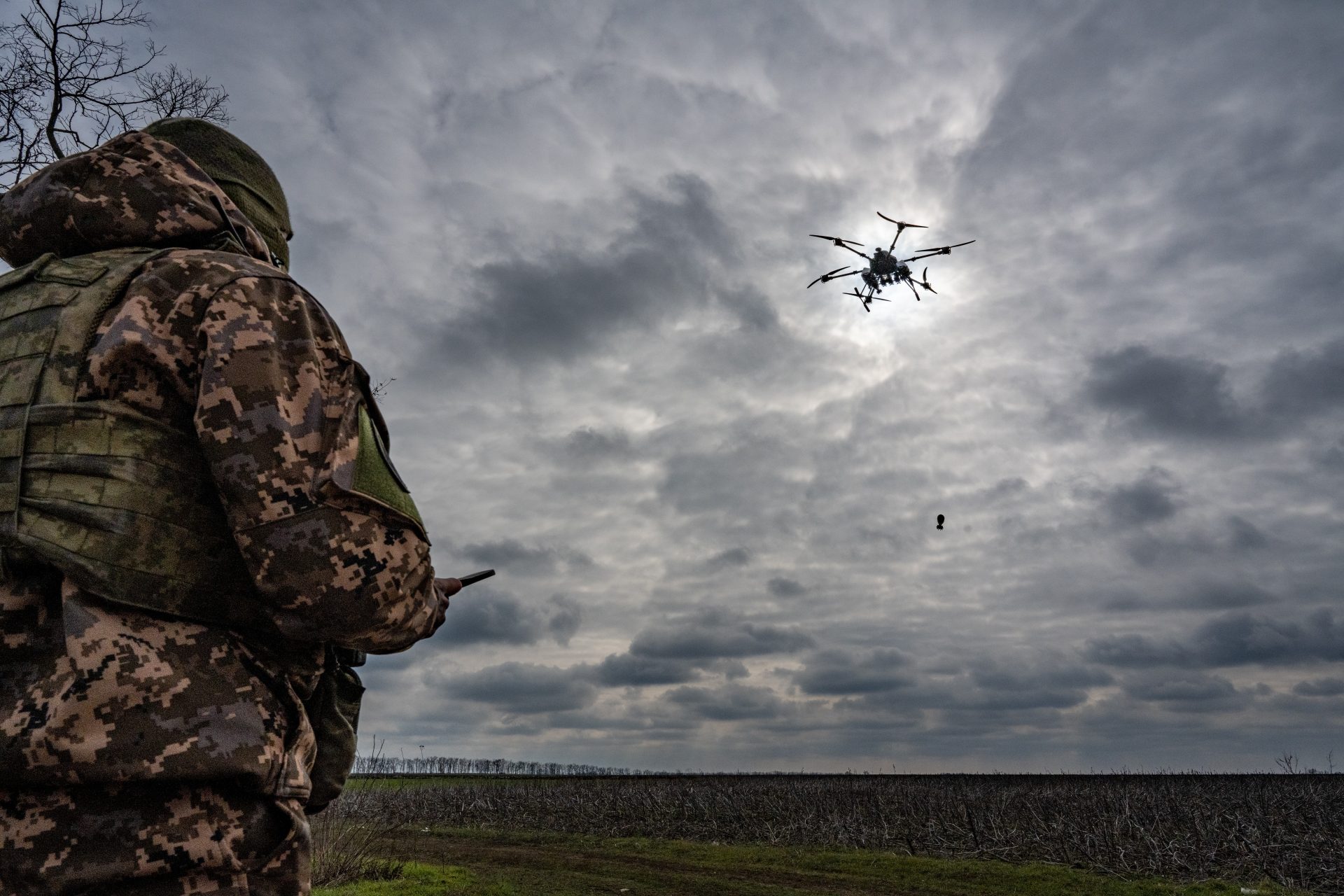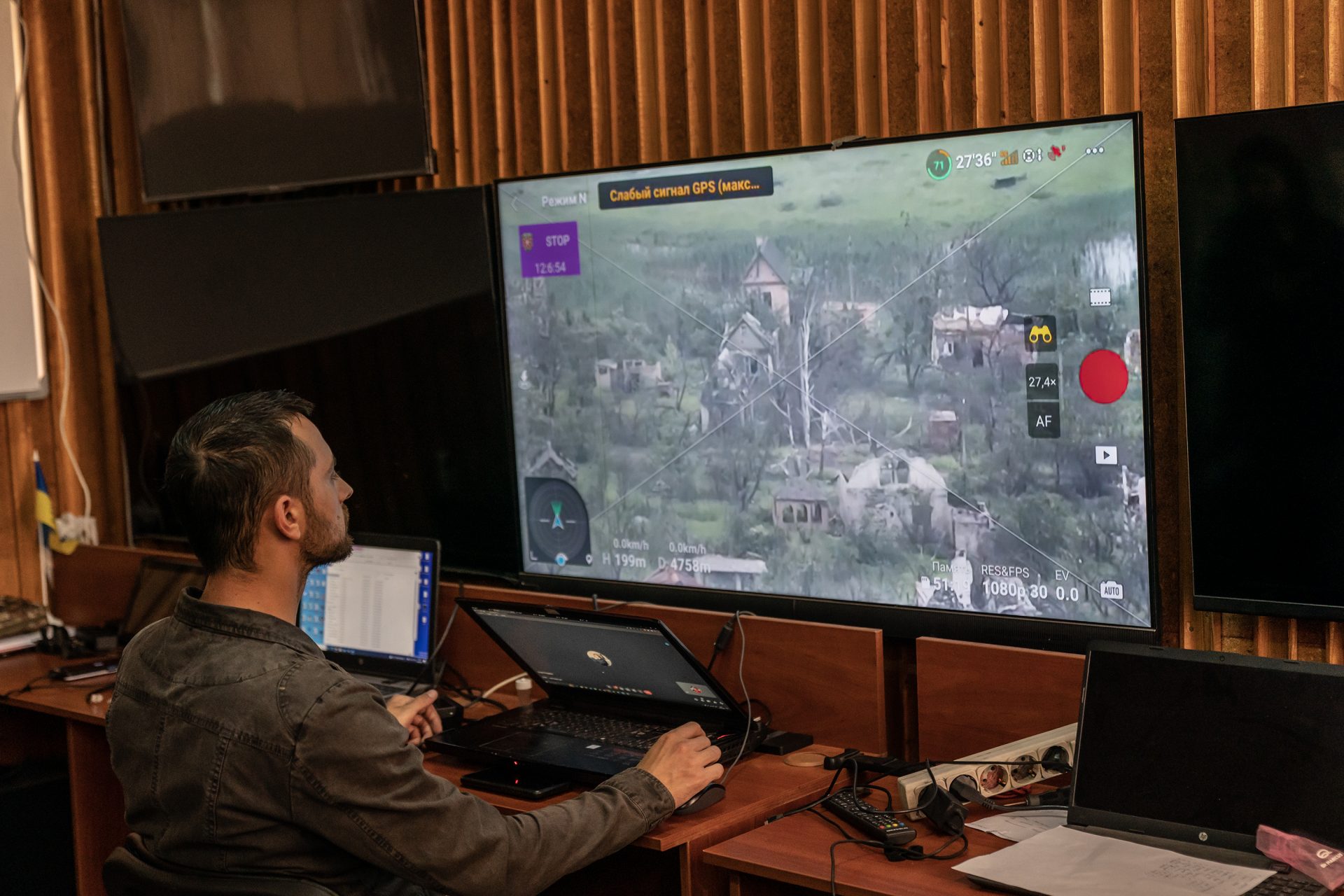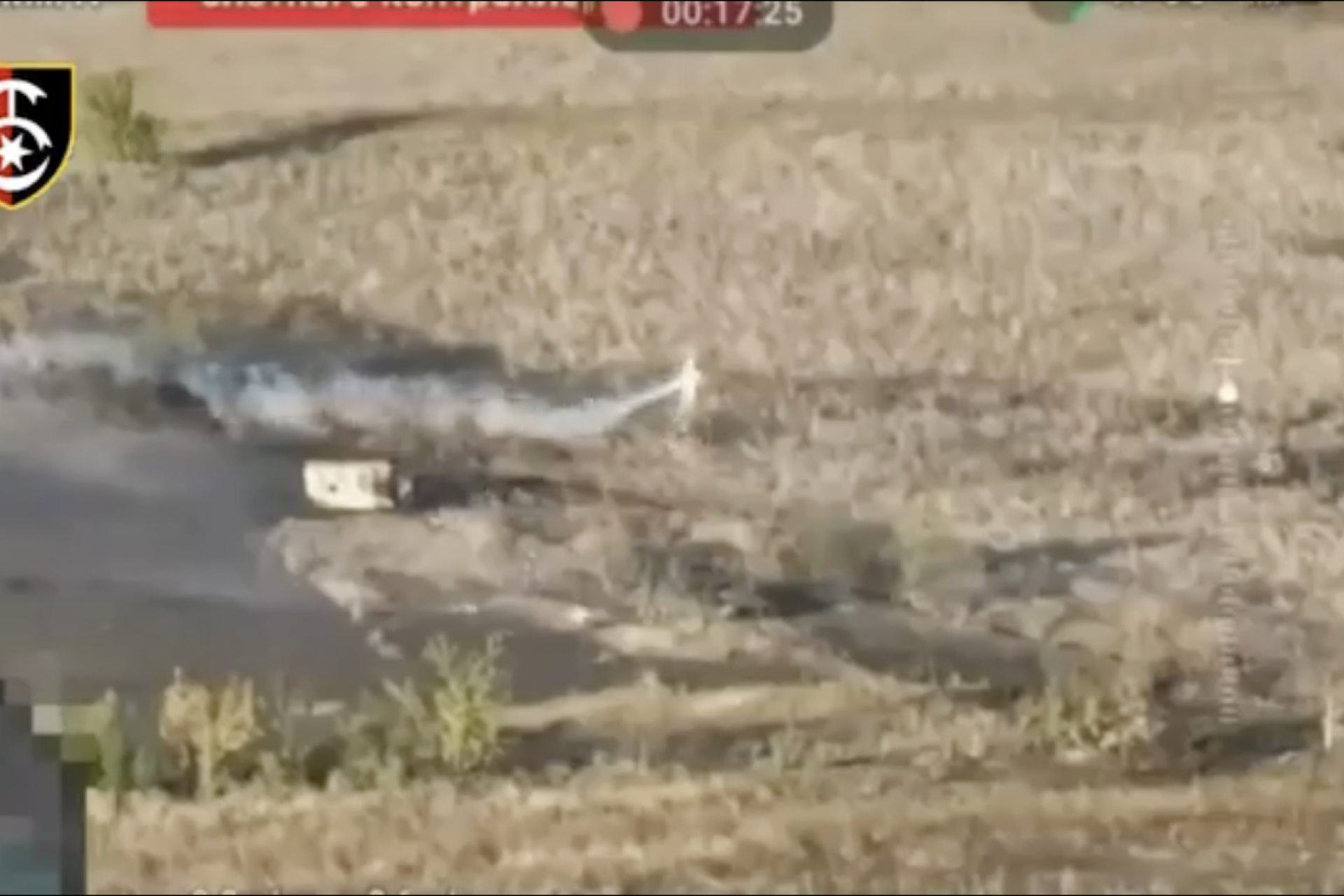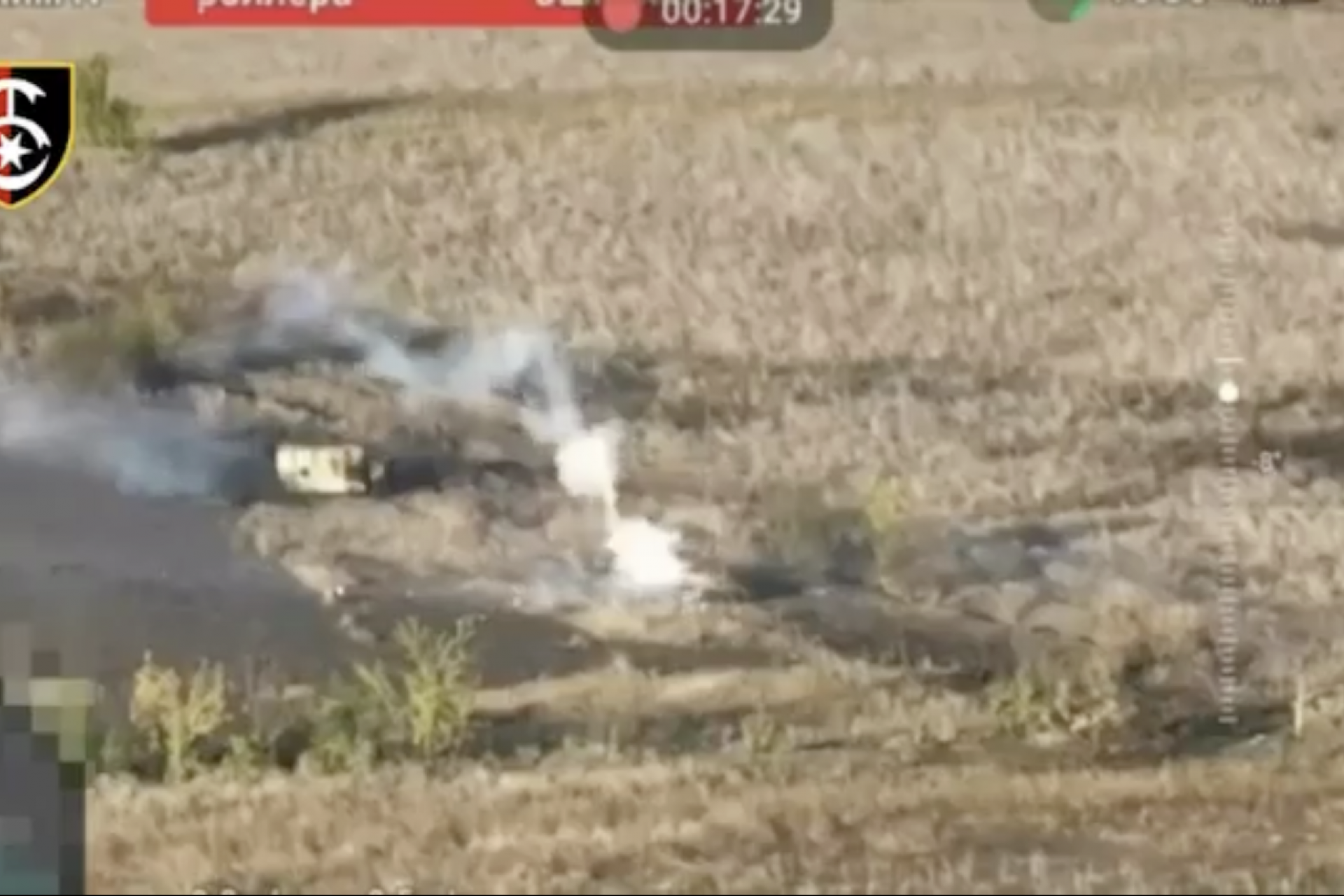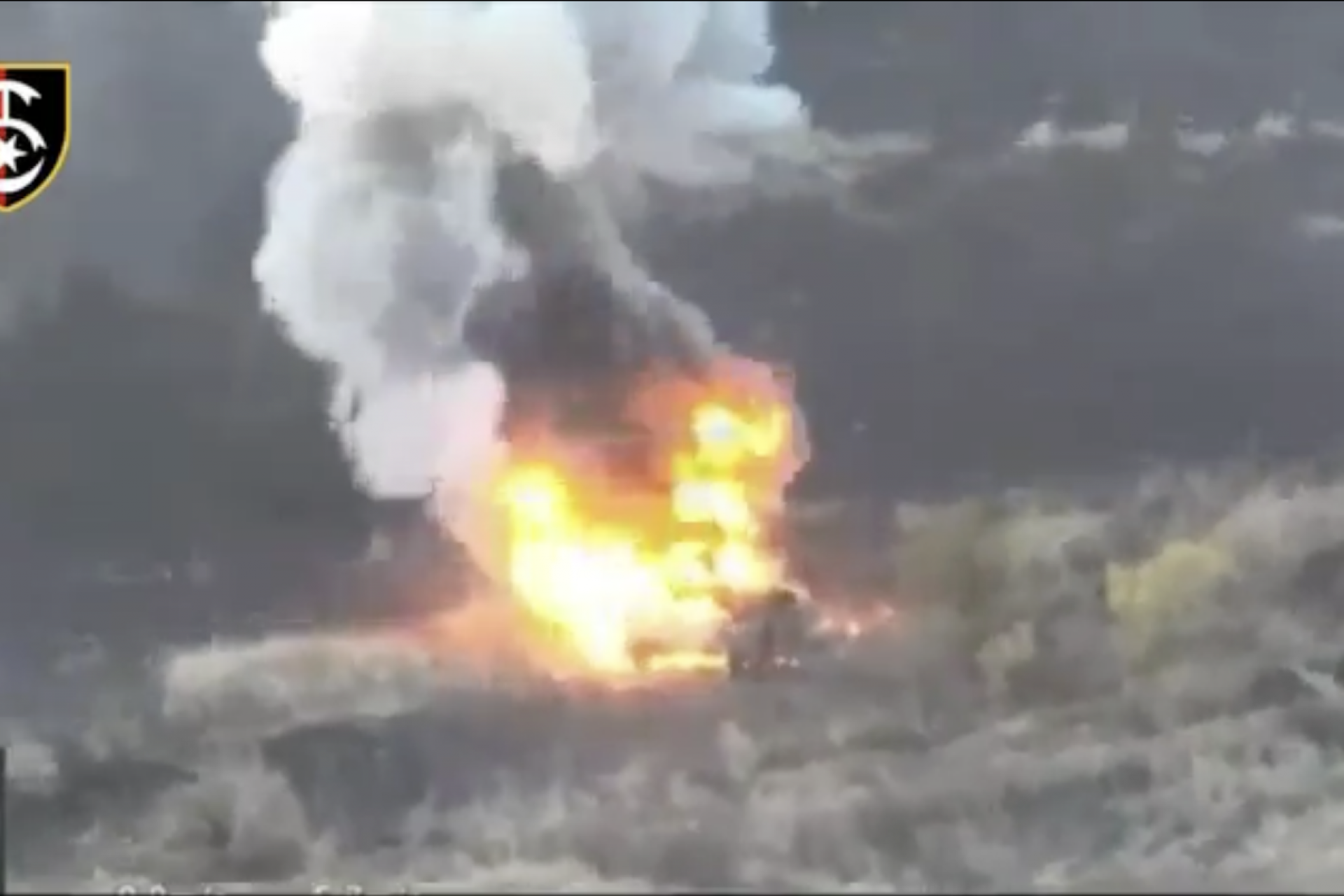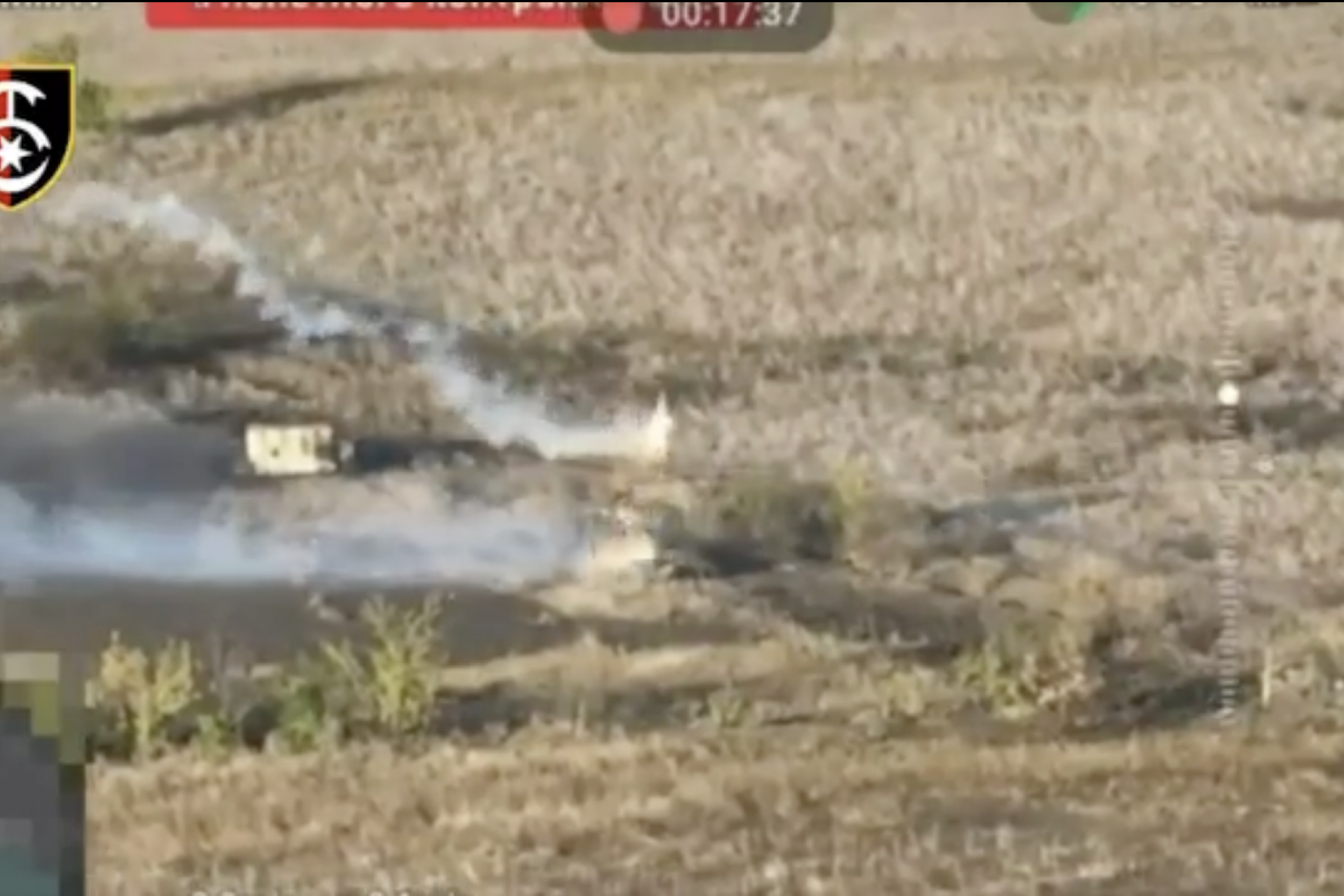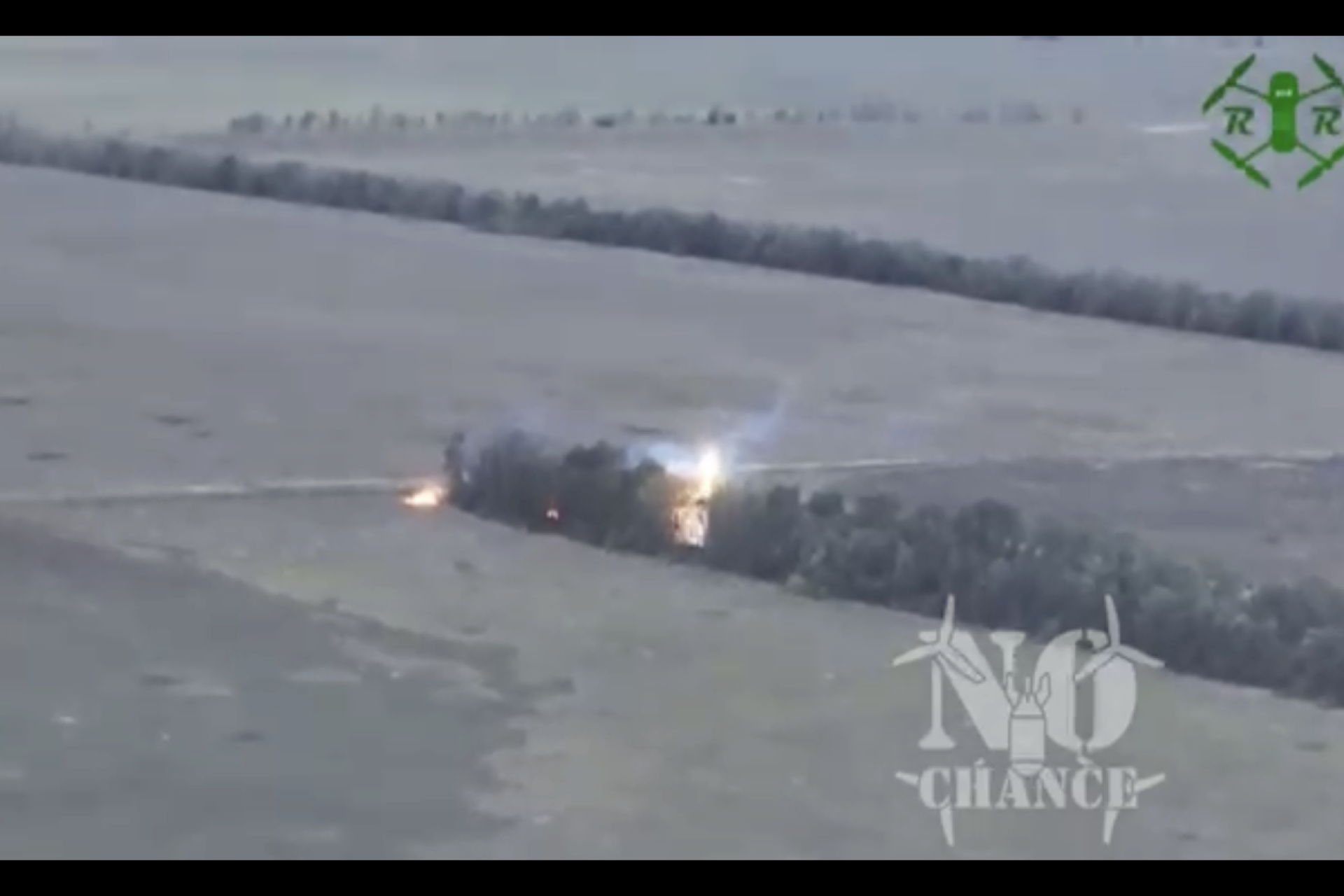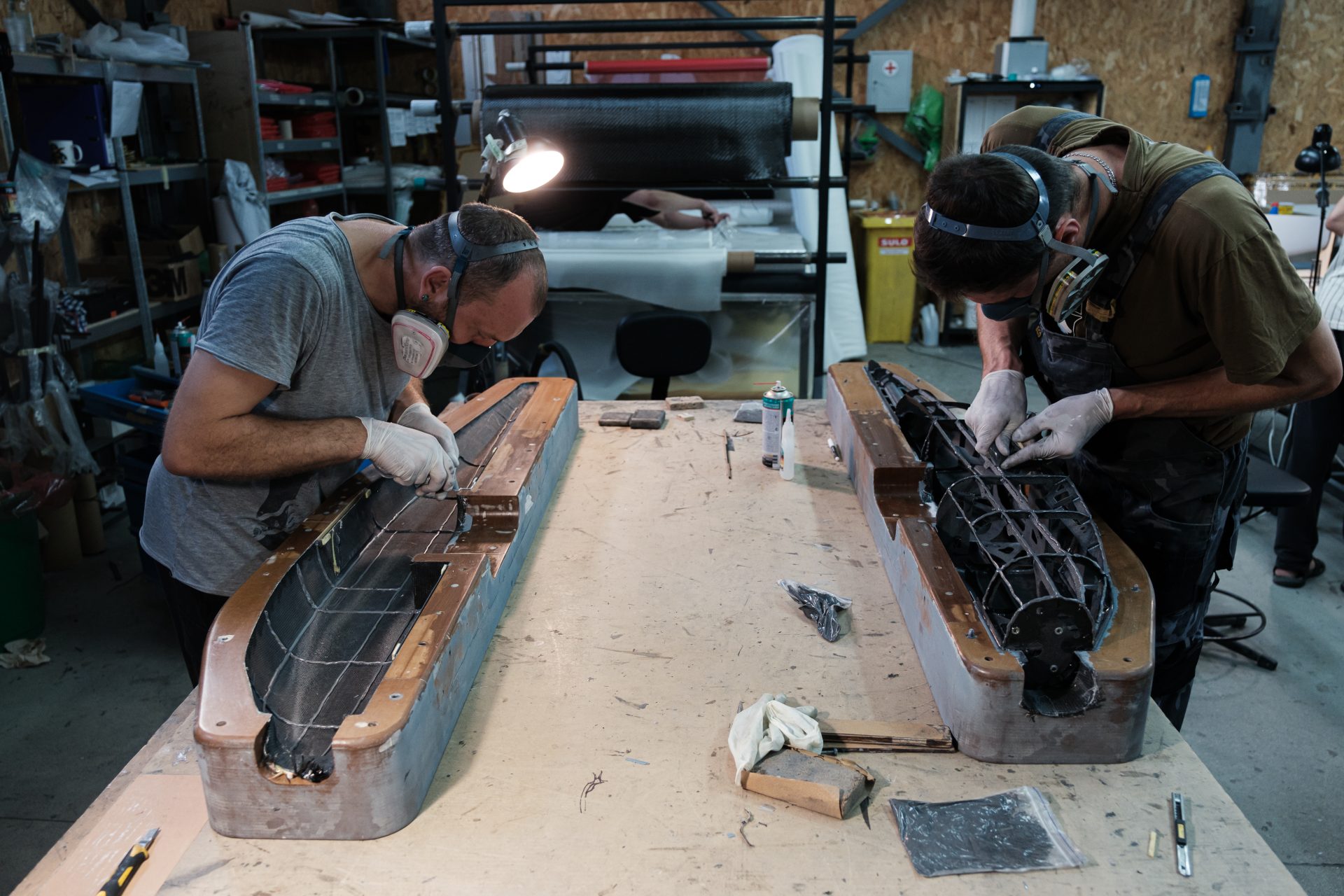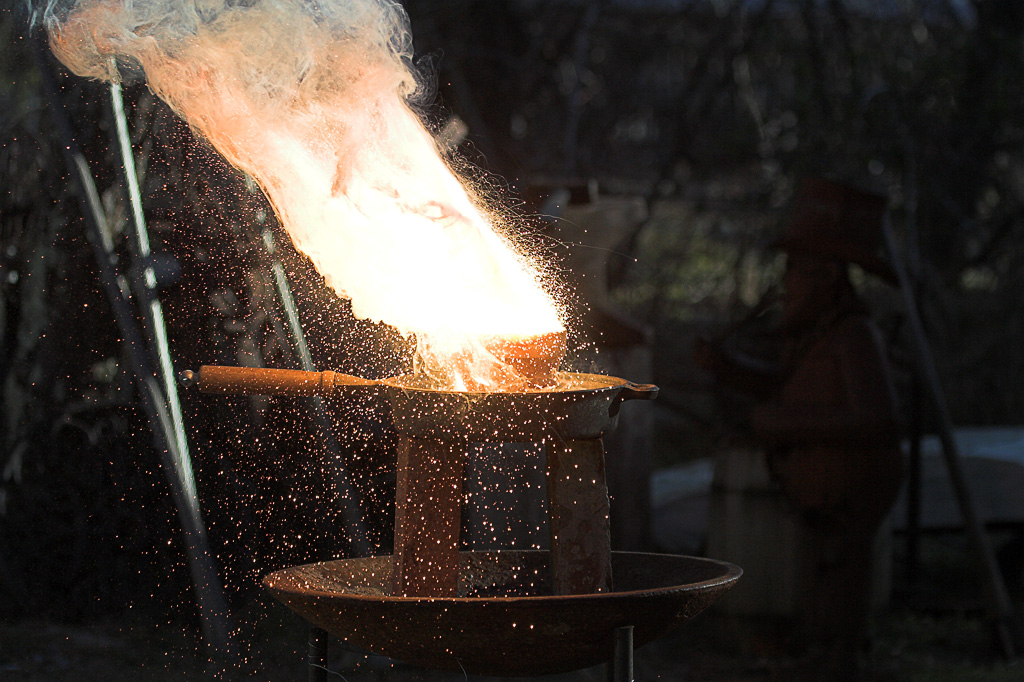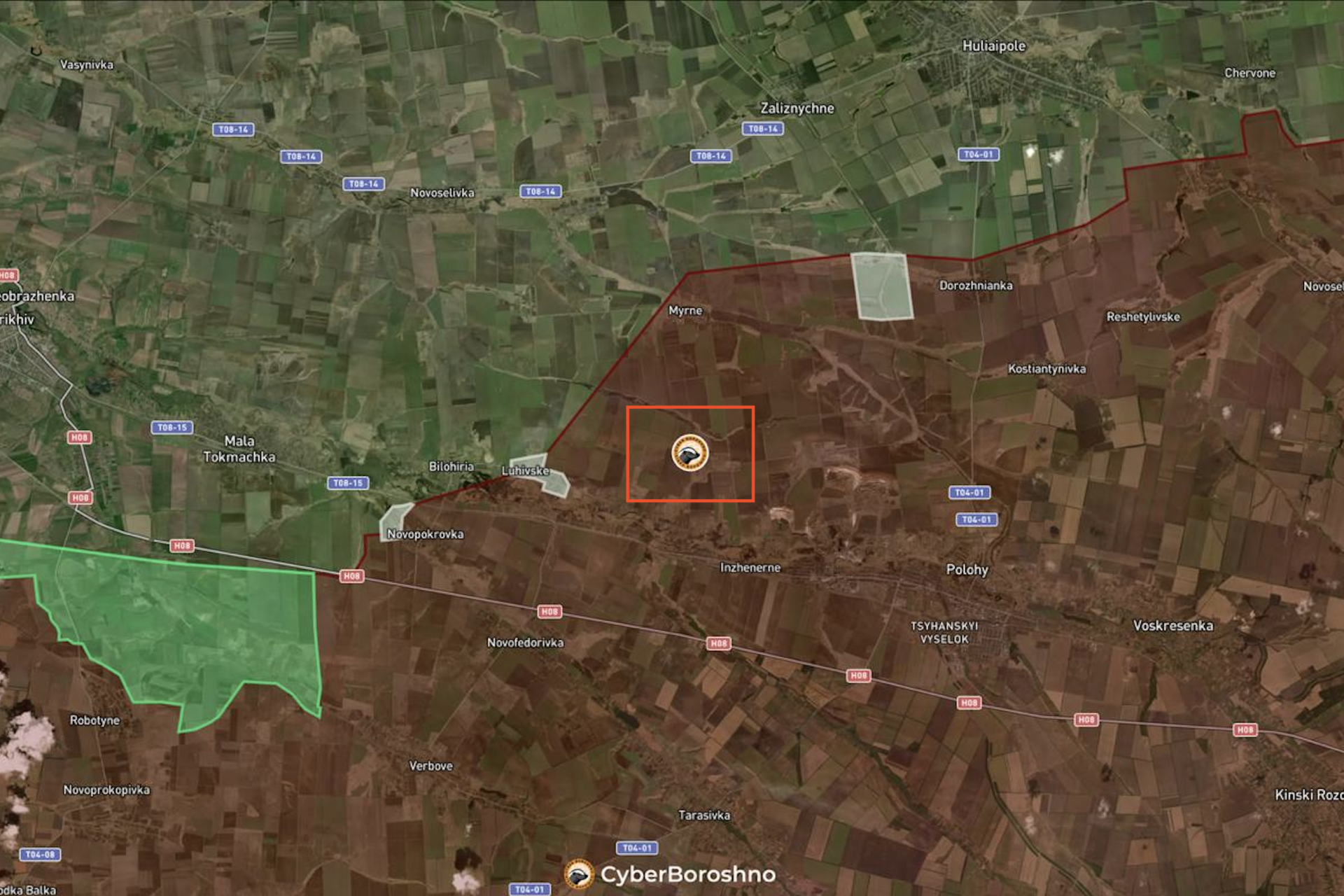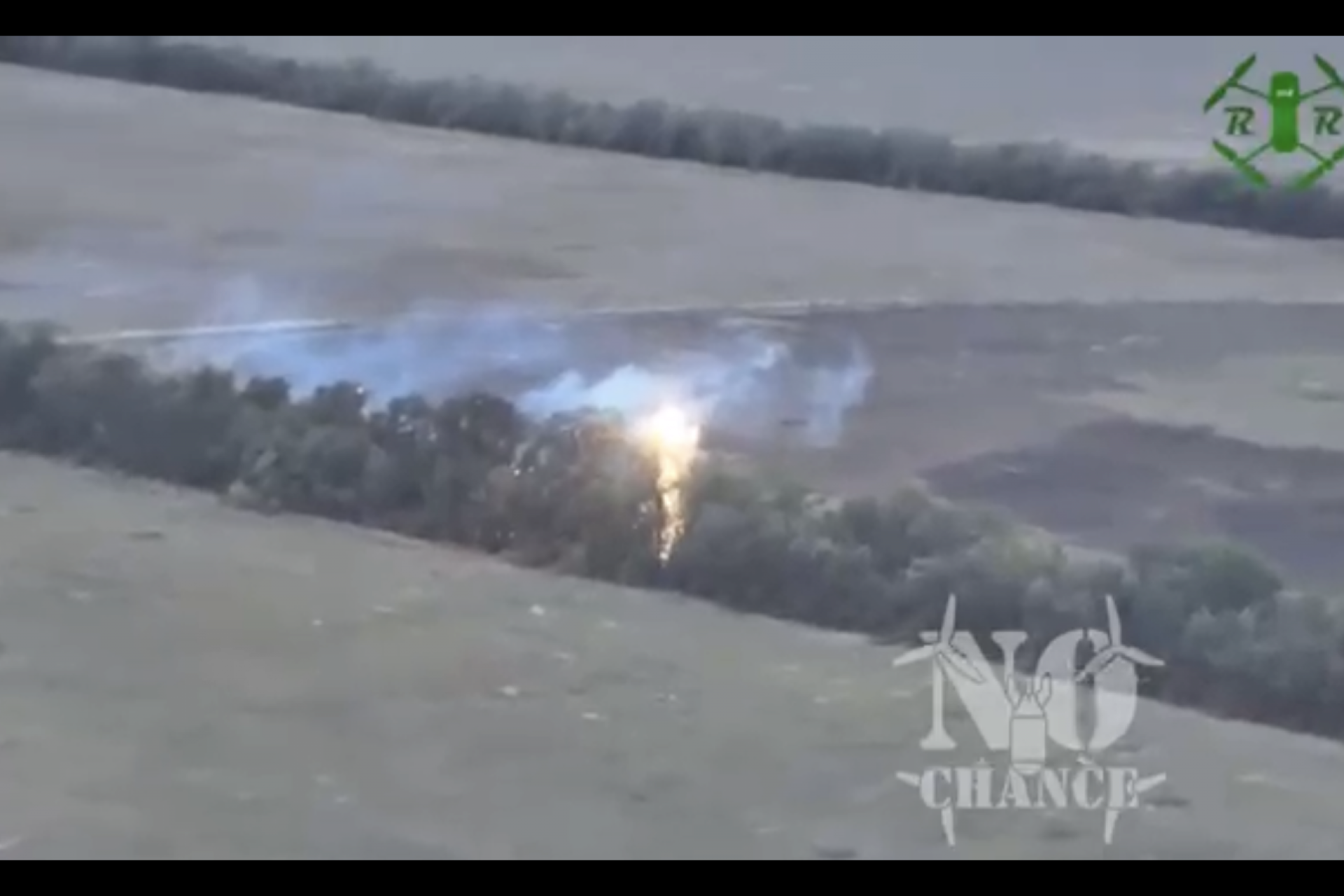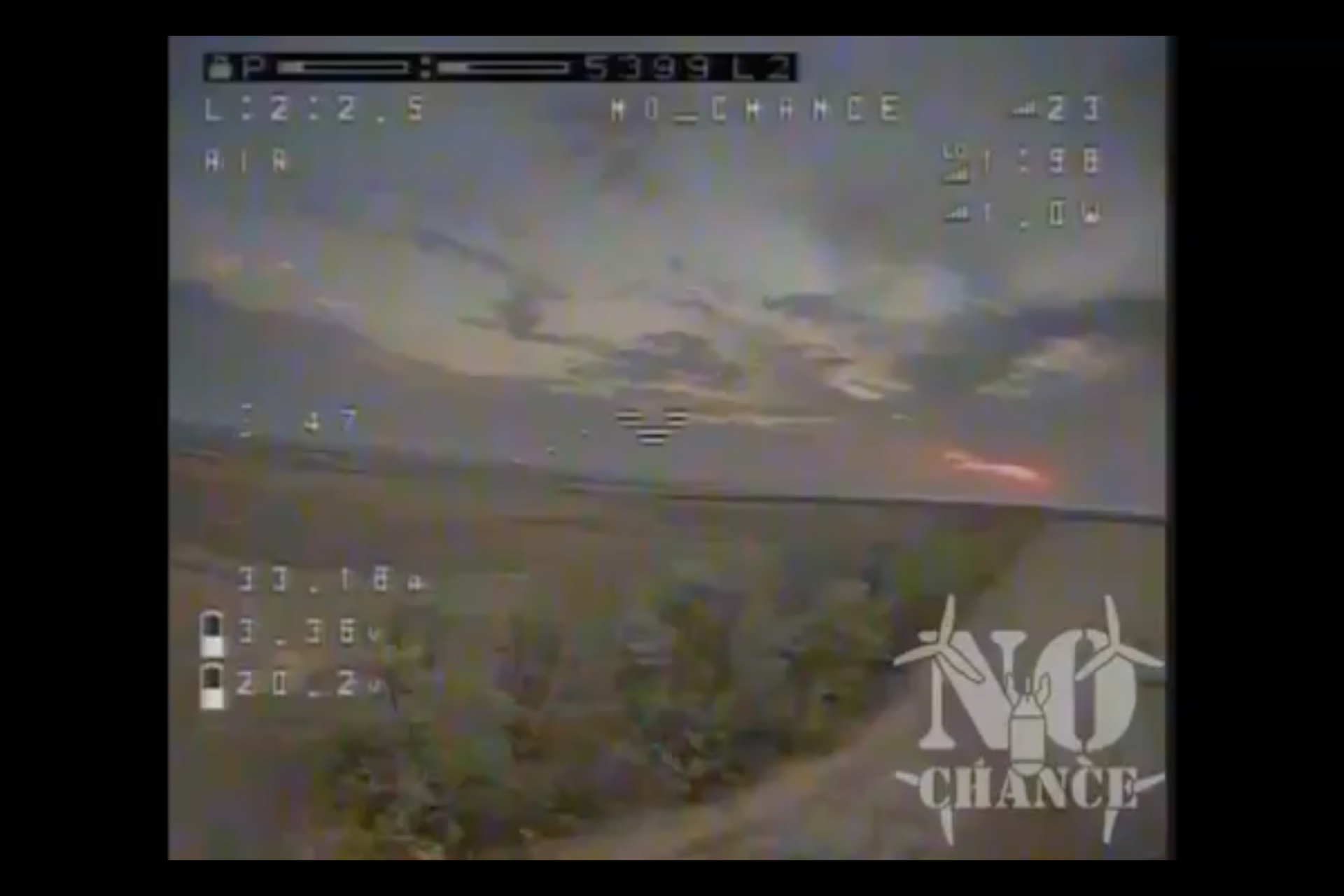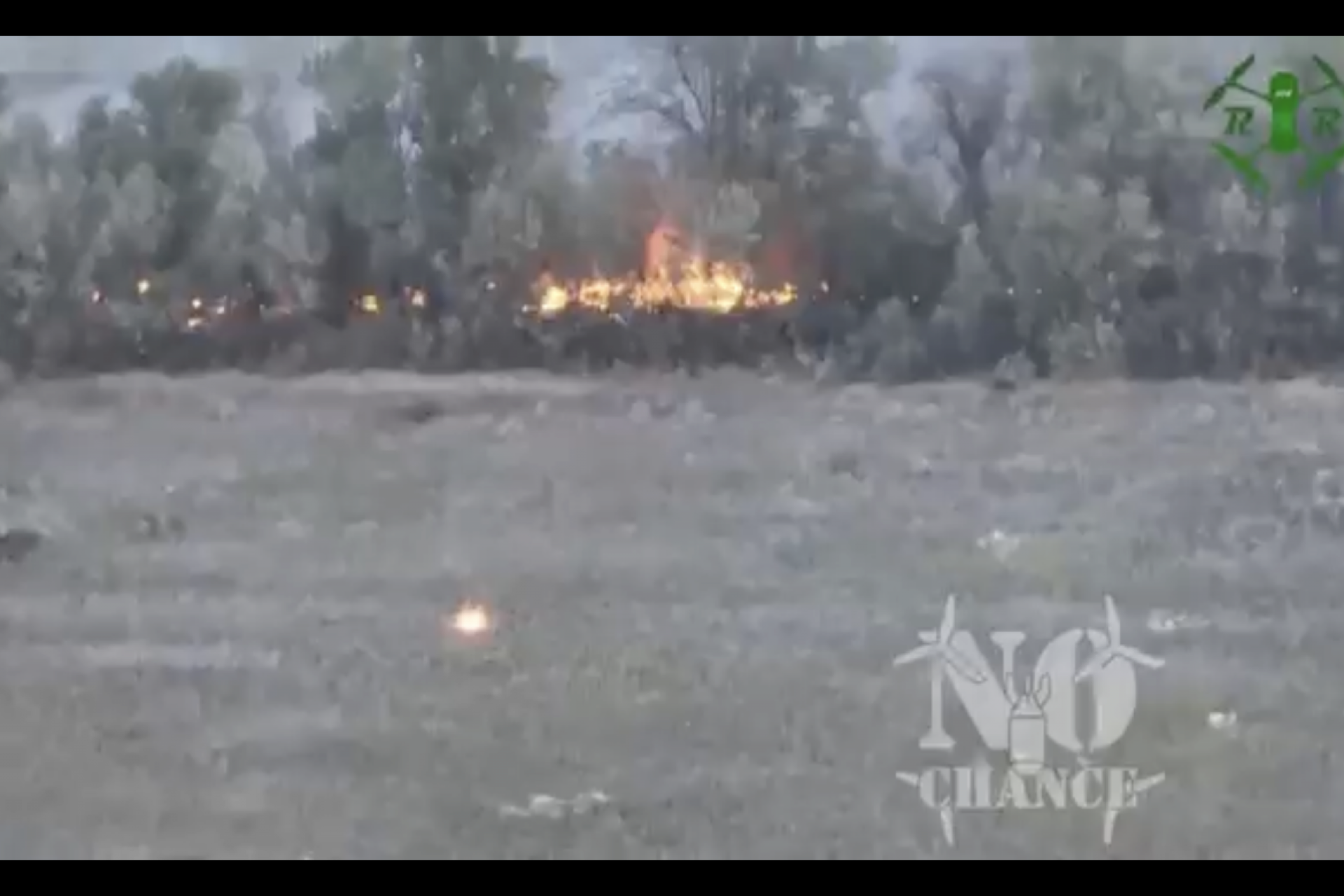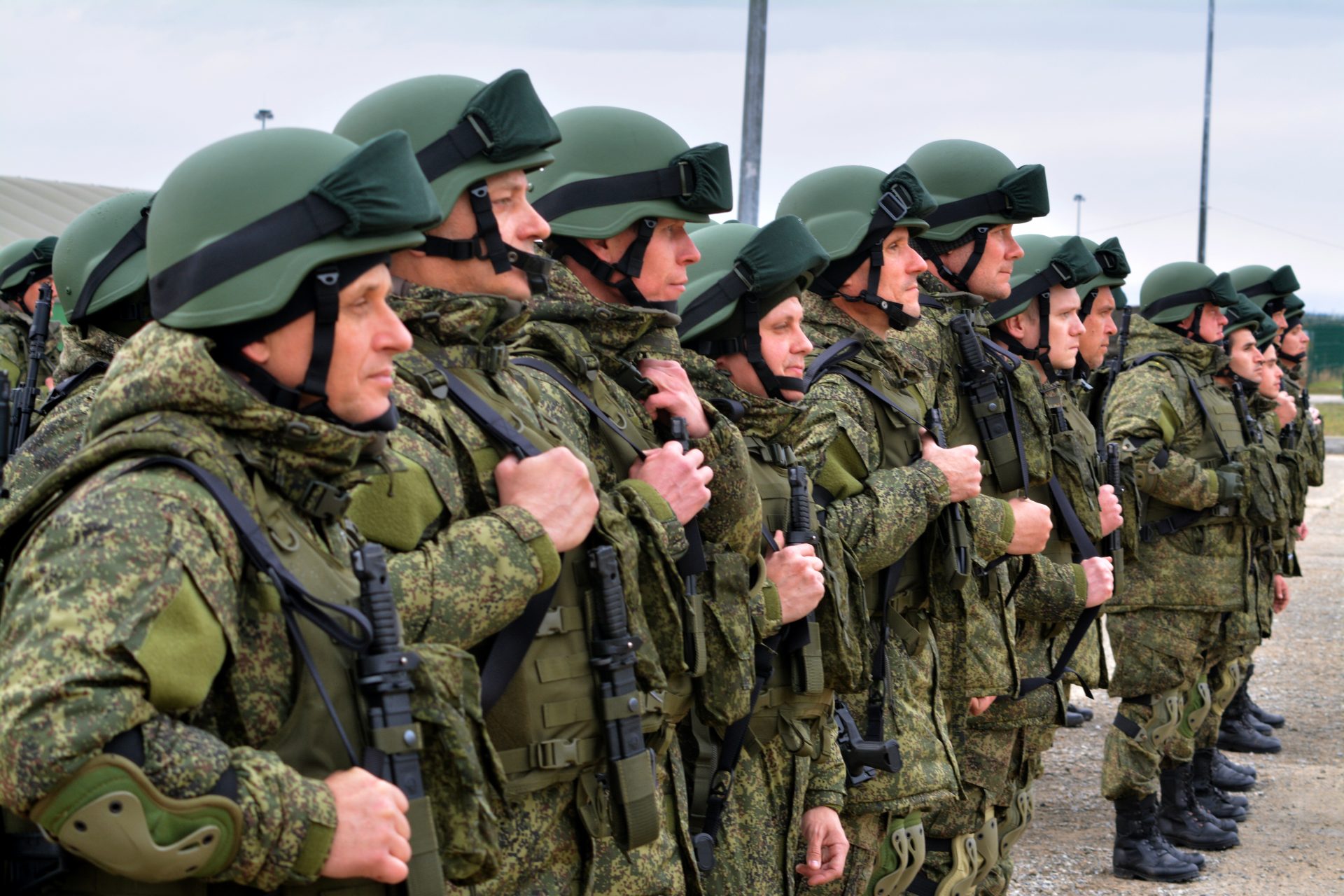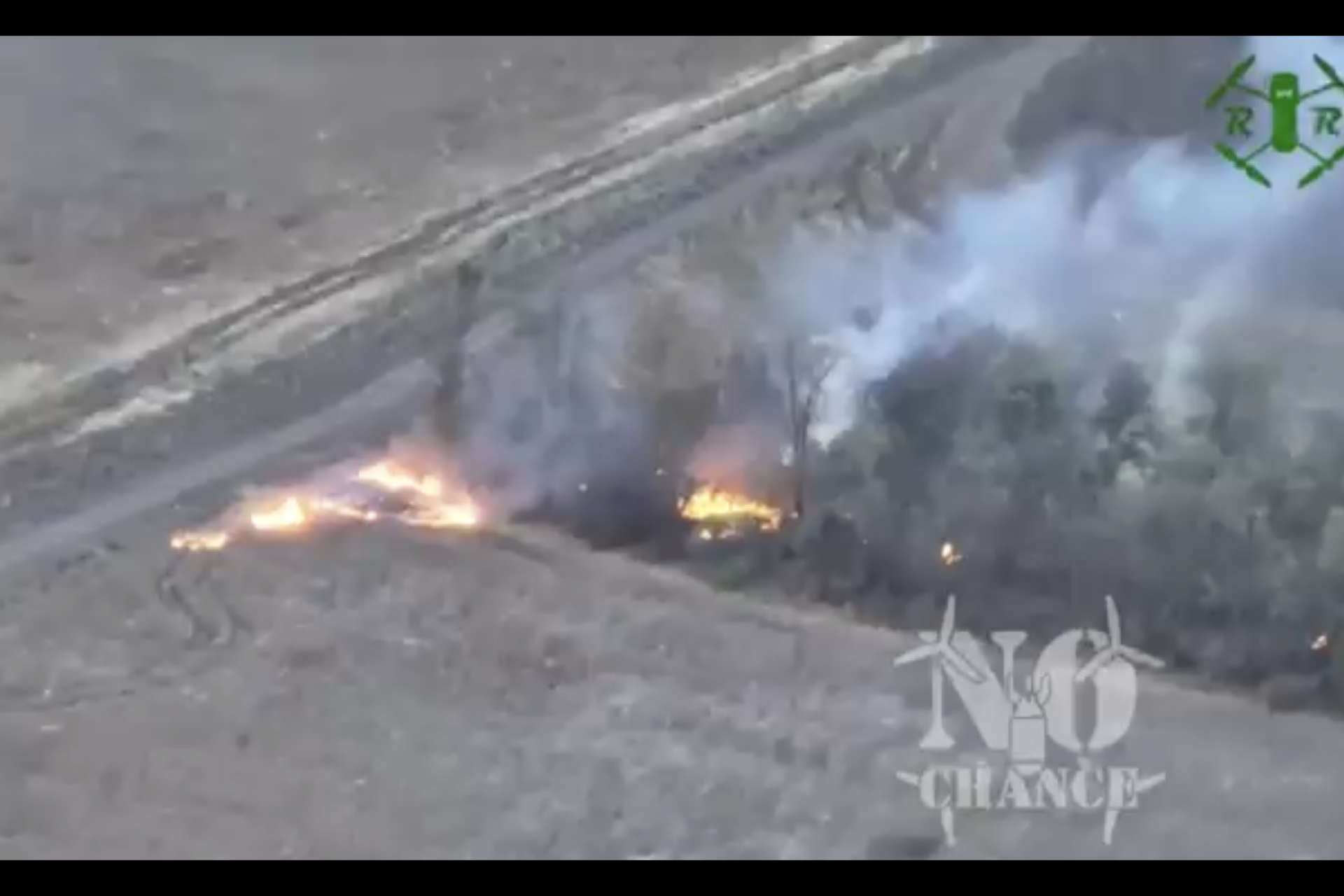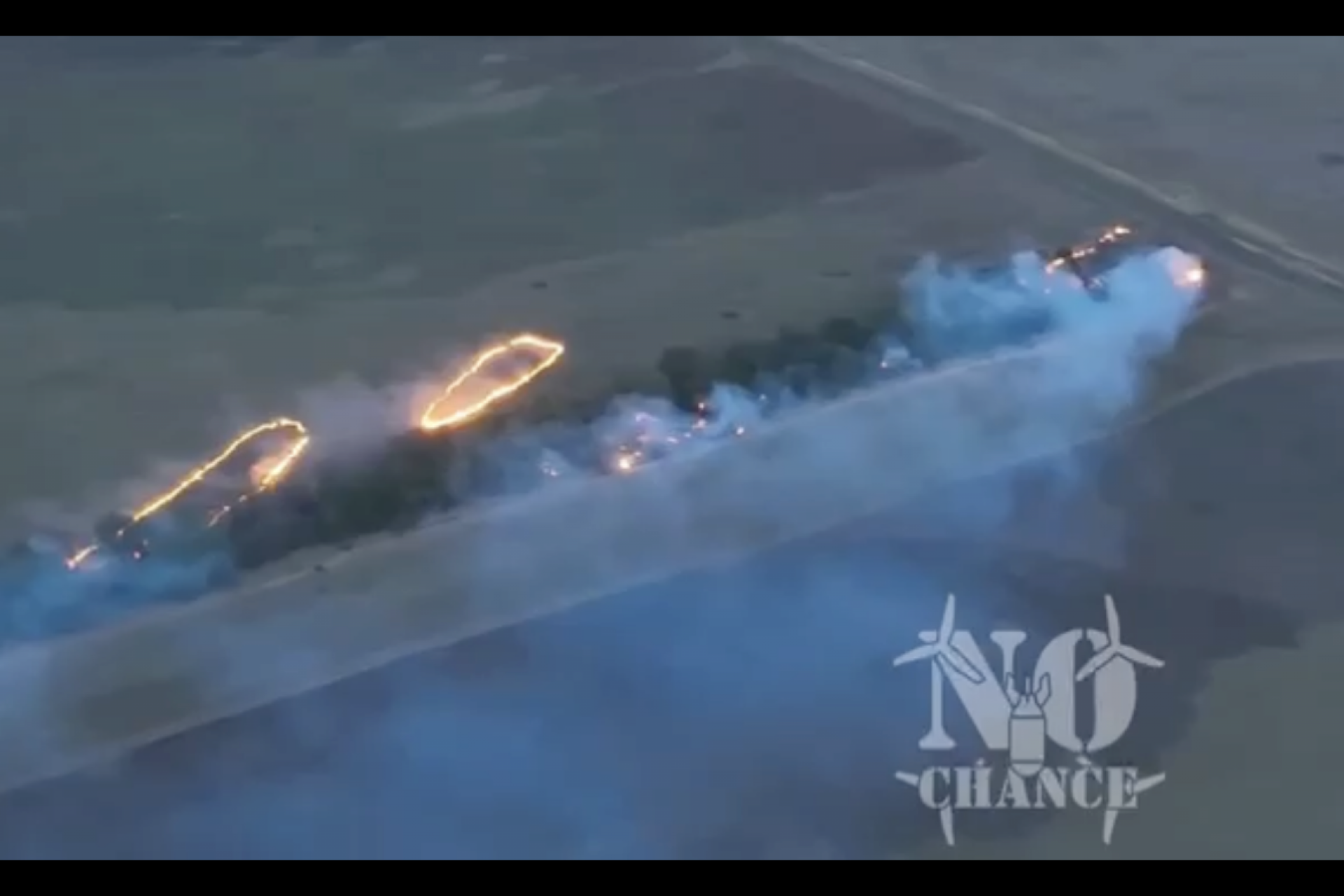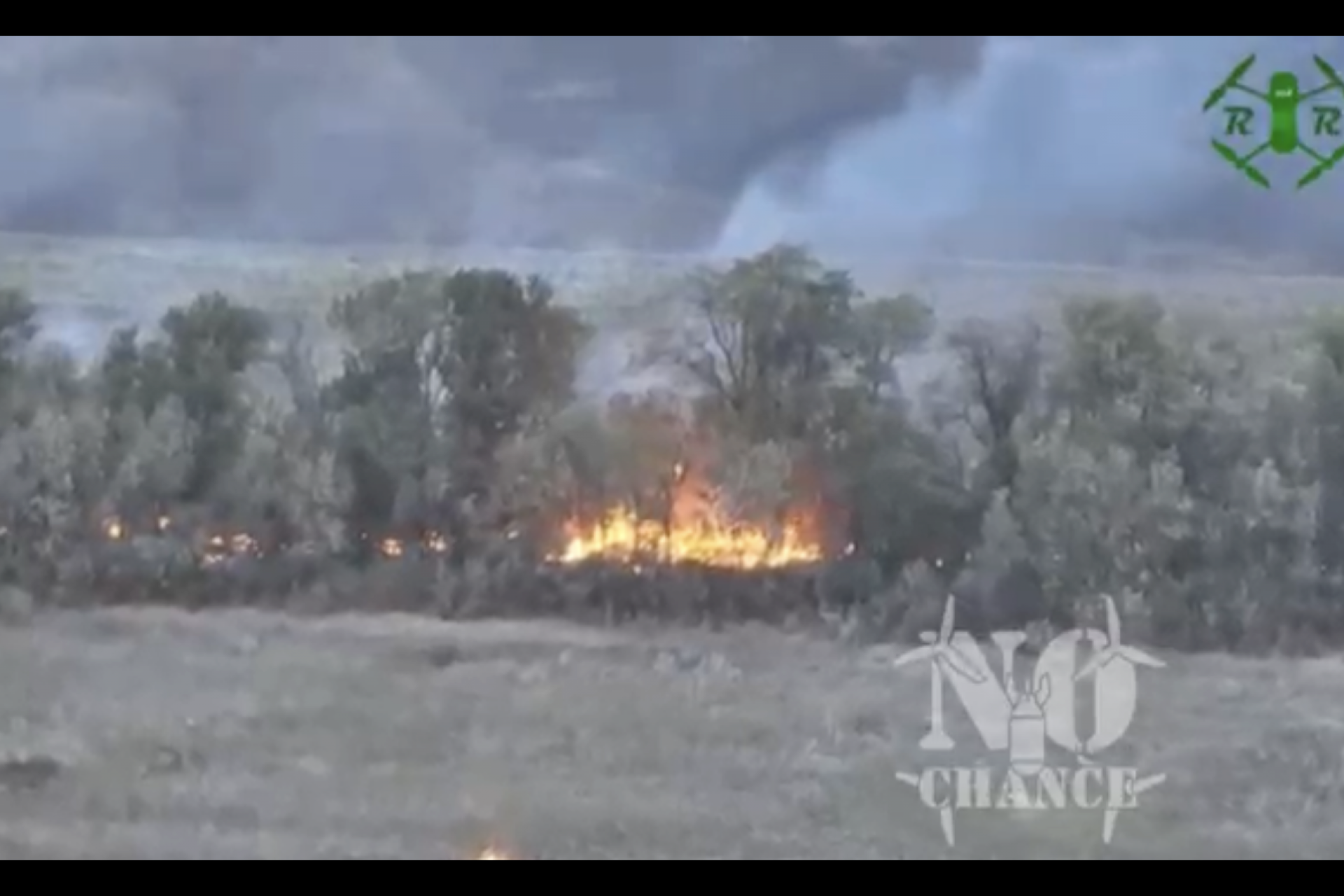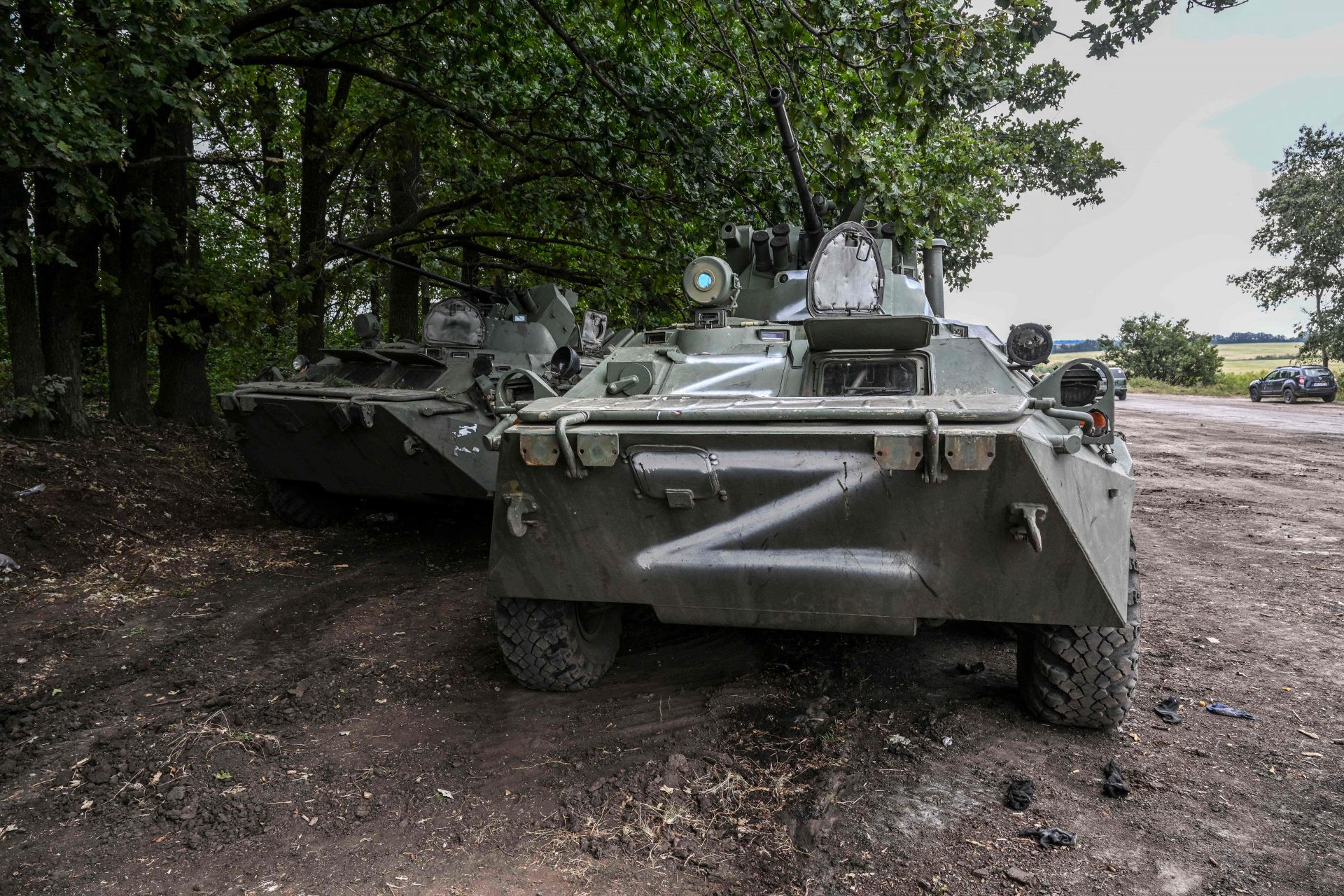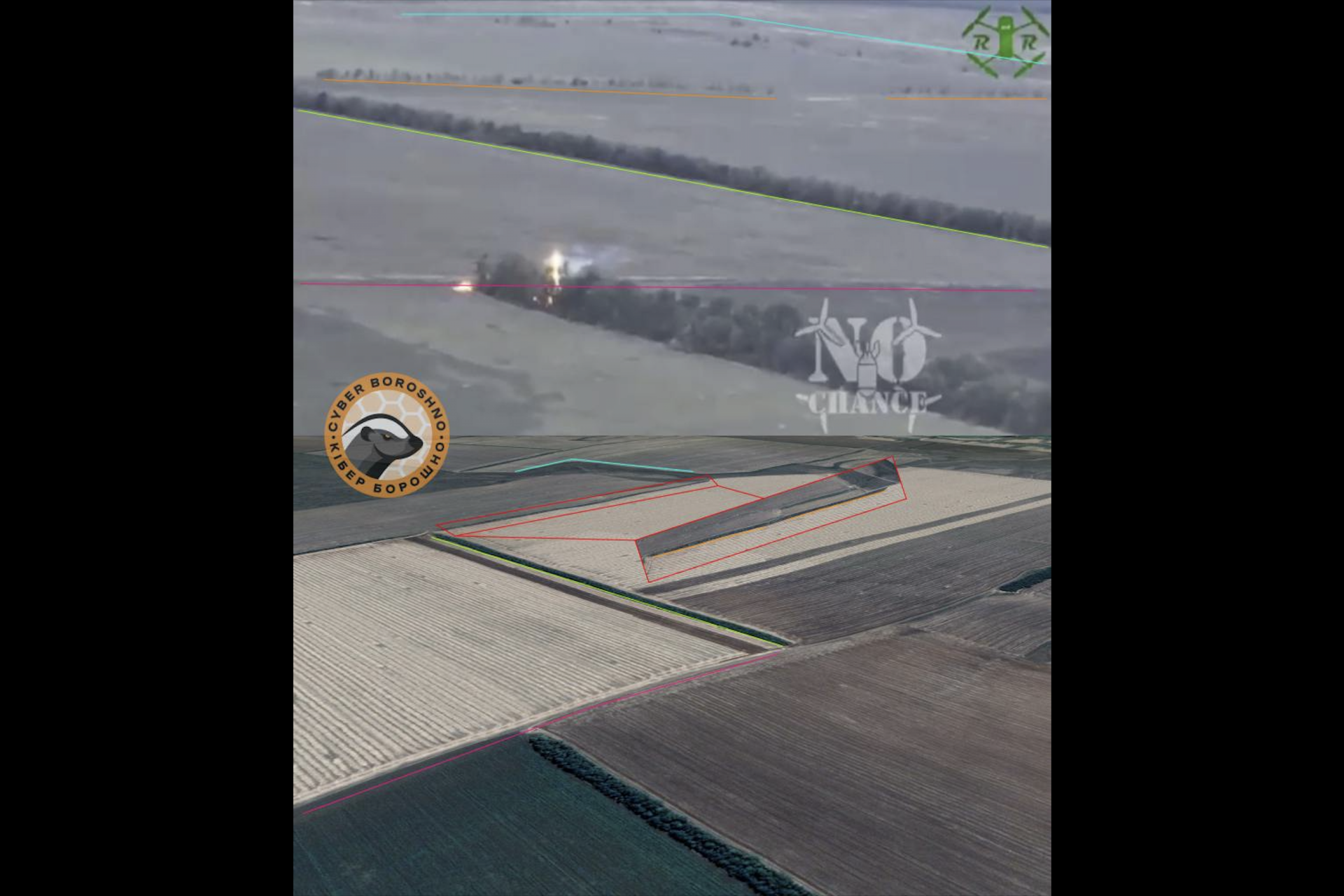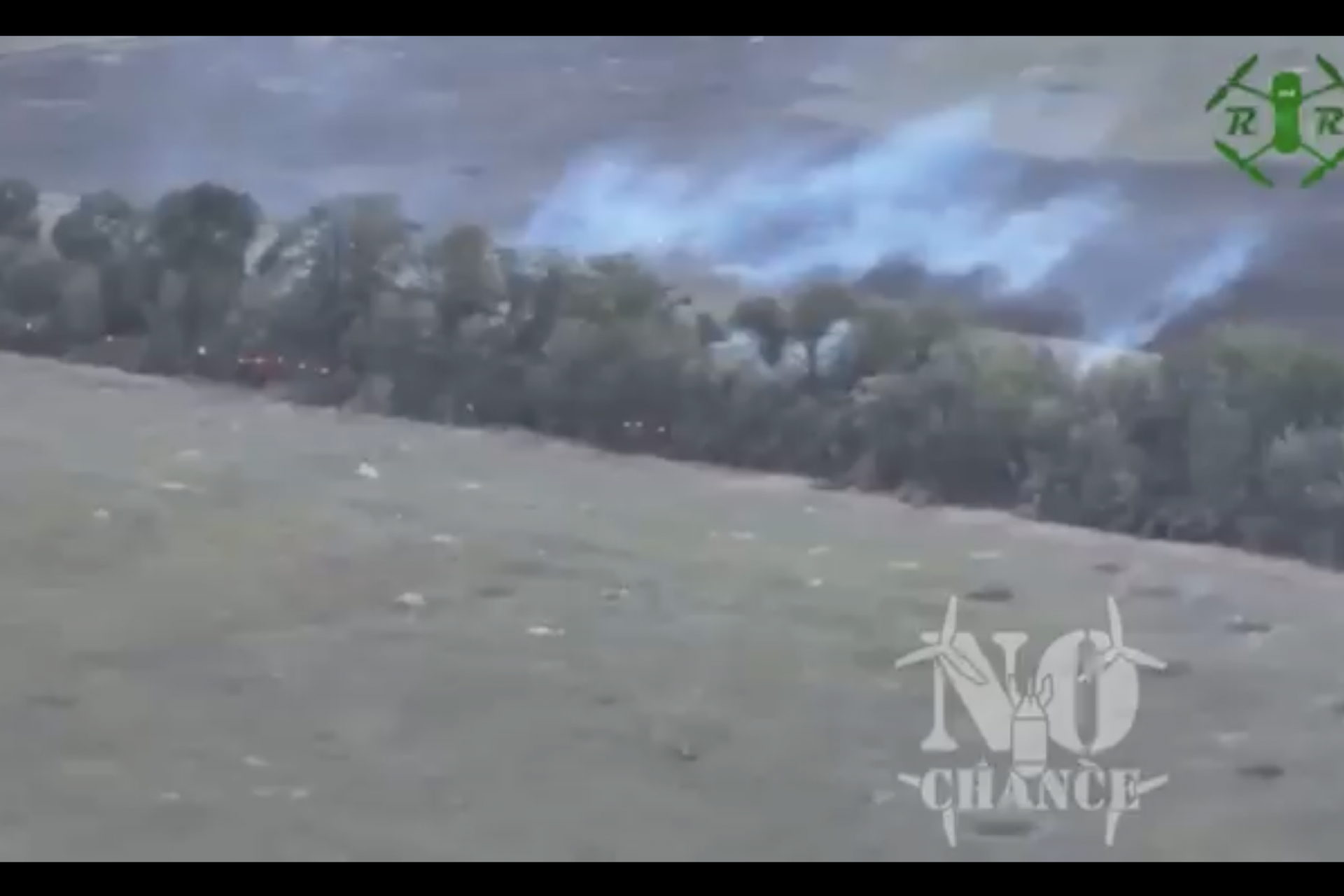Dramatic drone strike: Ukrainian flamethrower takes aim at Russian tank
Drone-captured combat footage has provided remarkable visuals from the frontlines in Ukraine. Notably, a video recorded in October 2024 unveiled a uniquely extraordinary scene on the battlefield.
In October 2024, Ukraine's Ministry of Defense published video footage of its latest terrifying drone-based weapon engaging a tank on the battlefield. What did the Ukrainians employ? A flamethrower drone that drops super hot thermite on enemy targets.
“Truly unique combat footage: a "dragon" drone spews molten thermite on a Russian tank and destroys it,” the Ukrainian Defense Ministry post explained. The comment was paired with a video of the attack, which was captured by, and credited to, Ukraine's 30th Mechanized Brigade.
Photo Credit: X @DefenceU
Forbes reported the video of the attack was captured near Minkivka in eastern Ukraine, and it showed one of Ukraine's thermite-wielding ‘dragon drones’ dropping a rather small amount of the molten metal on top of a Russian tank operating in a field.
Photo Credit: X @DefenceU
The video footage cuts to a Russian tank burning. However, it is unclear if the footage is of the same tank that was attacked. Other news outlets that reported on the attack, like Business Insider, noted that they could not verify the video.
Photo Credit: X @DefenceU
“That incendiaries are effective anti-tank weapons should come as no surprise, even if it took a few weeks for Russian and Ukrainian drone operators to appreciate it,” explained Forbes David Axe about the attack. Kyiv only began using its new drones in September 2024.
Photo Credit: X @DefenceU
In early September, the first video footage of Kyiv’s new thermite-flamethrower drones, which came to be nicknamed dragon drones, emerged online. The footage showed the new invention assaulting a Russian position in a tree line.
Photo Credit: Telegram @kiber_boroshno
It was reported at the time that an unknown type and number of combat drones had been rigged with the ability to launch an incendiary mixture, which means that these drones were essentially transformed into flying flamethrowers. However, things were much worse for the Russians who had to face these weapons.
The incendiary concoction cooked up by the Ukrainians was reportedly a powdered metal mixture of thermite, and it produced an extremely high temperature when burned according to Militarnyi.
Militarnyi reported that thermite powder was most likely the incendiary used and it added such a mixture could burn at temperatures of 2400° Celsius or 4352° Fahrenheit.
Photo Credit: Wiki Commons By Schuyler S., Own Work, CC BY-SA 2.5
Combat footage captured the power of Ukraine’s new flamethrower drone during a mission that saw one of the weapons used to attack a Russian defensive position hidden along a treeline.
Photo Credit: Telegram @kiber_boroshno
Soldiers of the 108th Territorial Defense Brigade were the masterminds behind the attack, which took place somewhere in Zaporizhzhia, though other reports suggested that the attack may have occurred in Donetsk.
Photo Credit: Telegram @kiber_boroshno
“The No Chance Сompany of Strike Drones used a drone with an unusual warhead to burn down a position in a forest belt located on the front line,” Militarnyi reported.
Photo Credit: Telegram @kiber_boroshno
The video of the attack showed what happened from the perspective of the drone used in the assault, as well as from another drone that captured the attack as the dragon drone swept across the forested Russian position dropping molten thermite.
Photo Credit: Telegram @kiber_boroshno
Large plums of smoke developed where the thermite mixture was dropped and fire in those areas ignited almost immediately before intensifying and quickly growing larger.
Photo Credit: Telegram @kiber_boroshno
How the attack may have affected Russian troops manning their defensive positions wasn't known but the thermite drone assault appeared to be very effective at burning the area.
Newsweek reported that when thermite is ignited it can get hot enough to melt through steel but added that the risk to soldiers from the mixture is minimal if they don’t look up.
Photo Credit: Telegram @kiber_boroshno
“Thermite has limitations as an incendiary weapon due to its small area of effect. Unlike other incendiaries that burn instantly, a thermite reaction heats a small area,” reported Newsweek.
Photo Credit: Telegram @kiber_boroshno
The real risk for soldiers in a thermite attack comes from the fires that the metal ignites because they can be hard to put out due to the temperatures at which the metal burns.
Photo Credit: Telegram @kiber_boroshno
Fires can force soldiers out of their positions and this new tactic could prove very helpful in the dense treelines that now harbor defensive positions and break up large and open fields all across the flat eastern regions of Ukraine.
“These tree lines offer essential cover in a conflict constantly monitored by drones, with the Russian army fortifying its forward defenses along these natural barriers,” Newsweek’s Jesus Mesa explained.
Photo Credit: Telegram @kiber_boroshno
“The use of thermite-dispensing drones has shown to be effective in military applications, though incendiary weapons [pose] significant risks if deployed near civilian populations,” Mesa added.
Never miss a story! Click here to follow The Daily Digest.
Photo Credit: Telegram @kiber_boroshno
More for you
Top Stories



